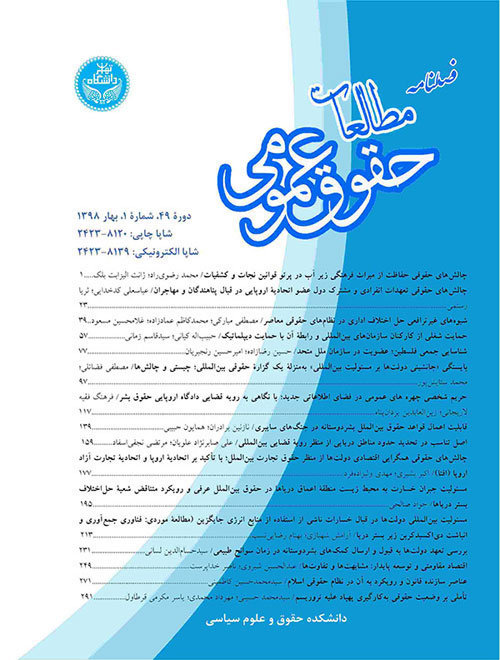Self-regulation of the Cyberspace
Since the introduction of cyberspace into human life, various ways have been suggested for regulating it. In this context, self-regulation, in the sense of private regulation and decentralized law-making, has come to fore as an efficient way for managing the online world. This approach, as a function of the libertarian discourse, views national legislation ineffective in regulating the cyberspace. But the theoretical framework of this kind of self-regulation and its strengths and weaknesses are open to debate. This study, using a descriptive-analytical approach, considers the architecture of cyberspace to be a systematic link between different layers, issues, and actors, and as such a new frontier. Given this feature, self-regulation can be an efficient way of regulating not just the various layers and issues of the cyberspace but also its physical and infrastructure issues.
-
Analysis of International Principles, Rules and Procedures Regarding Internet Disconnection in Emergency and Security Conditions
Yaser Aminoroaya *, Maryam Ahmadinezhad,
Scientific Journal of Security Horizons, -
Legal evaluation of the Zionist regime's doctrine in attacking Resistance Groups in third countries
Yasser Amin Al Ruaya *, Maryam Ahmadinejad,
Journal of Strategic Studies,


